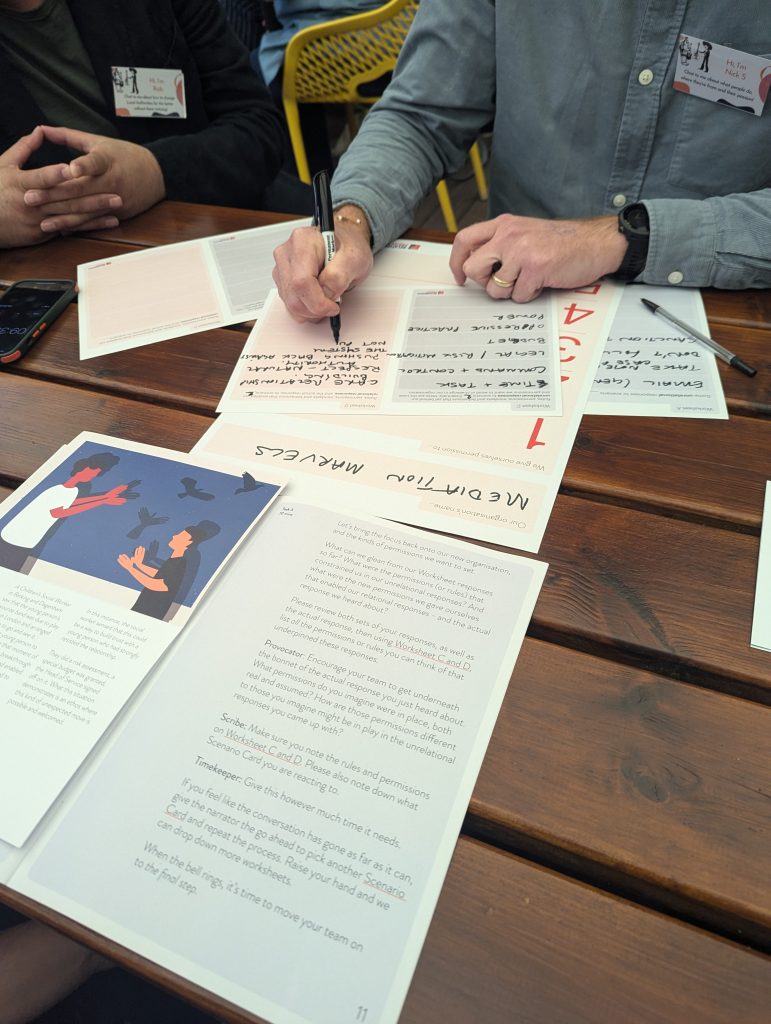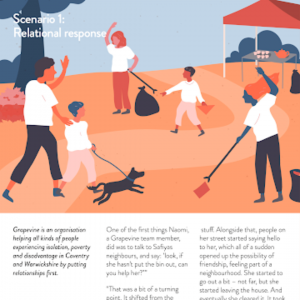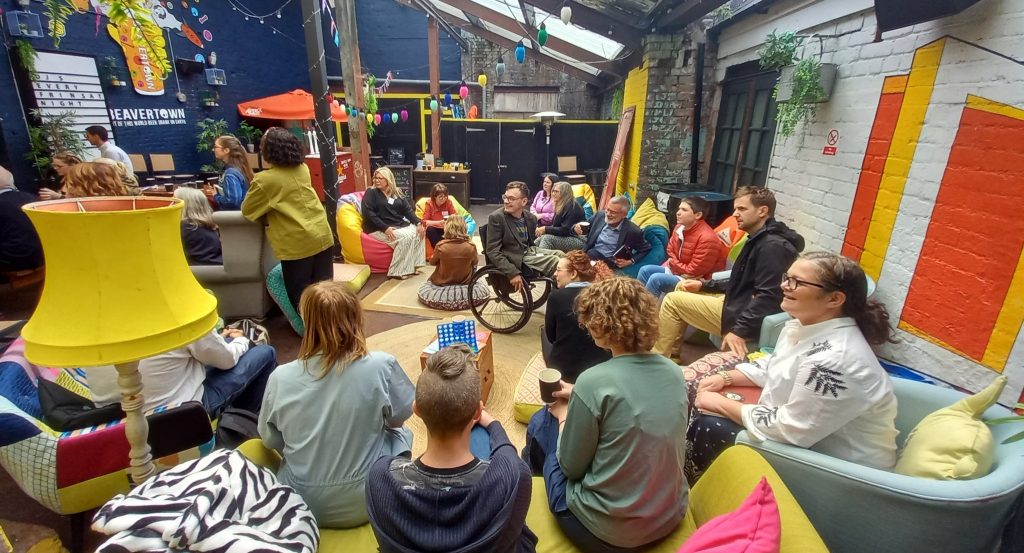The Permissions Game
Changing our permissions to put relationships first

Every community and every organisation is shaped by norms, assumptions and rules. They condition our behaviour, determine what is and is not permissible, and mould our relationships (more on what we mean by Permissions can be found here)
- What are the rules that shape our ability to work relationally?
- Which are helpful, enabling us to put relationships first, and which are unhelpful?
- Which are real – enshrined in policy and regulation – and which are assumed?
The Permissions Game invites you to explore the rules and norms that influence how we work and what we prioritise via a series of engaging scenarios. Gather your team, download the pack and press play!
Game Pack
Today is your first day at a brand new organisation offering a broad spectrum of support services to a local community. Through the Permissions Game, you are going to set the permissions that will guide the work of your organisation. What are the rules and norms you’ll be in place to enable you to be as relationship-centred as you can be?
In your Game Pack you will find…

Handbook
A step by step guide to the game, taking you through each phase and making sure the whole team is involved

Scenarios Cards
Imagine how you might respond to different scenarios and reveal what happened in real life

Prompt Cards
Stretch your thinking around relationship-centred practice by interrogating your intentions and behaviours

Worksheets
Explore the permissions that enable or disable relational responses to the scenarios you think about

Org Board
Agree the organisational permissions that will shape how you, as a new organisation, operate
Background Reading

Changing Our Permissions
In this blog, David Robinson introduces the idea of ‘Permissions’ and explores the Unspoken Conventions, Imaginary Rules and Real Rules that influence our social behaviour, and shape the extent, content and quality of our relationships. He encourages us to think about which of these are helpful, which are unhelpful, and which we can influence.

Relationships Case Maker
Few people argue that relationships don’t matter, but many feel they don’t have the time, capacity or permission to prioritise them. This Case Maker assembles the evidence base for putting relationships first, describing why relationships matter, what great relationship-centred practice looks like, and how it could make an impact in your context.

A letter from Birmingham
We first introduced the Permissions Game at a gathering in Birmingham attended by 120 relationship-centred practitioners on 12th July 2024. We spent the day unearthing the permissions, assumptions and rules that shape our ability to work relationally, and created alliances to start shifting the unhelpful permissions. Here, we share our reflections from the day
